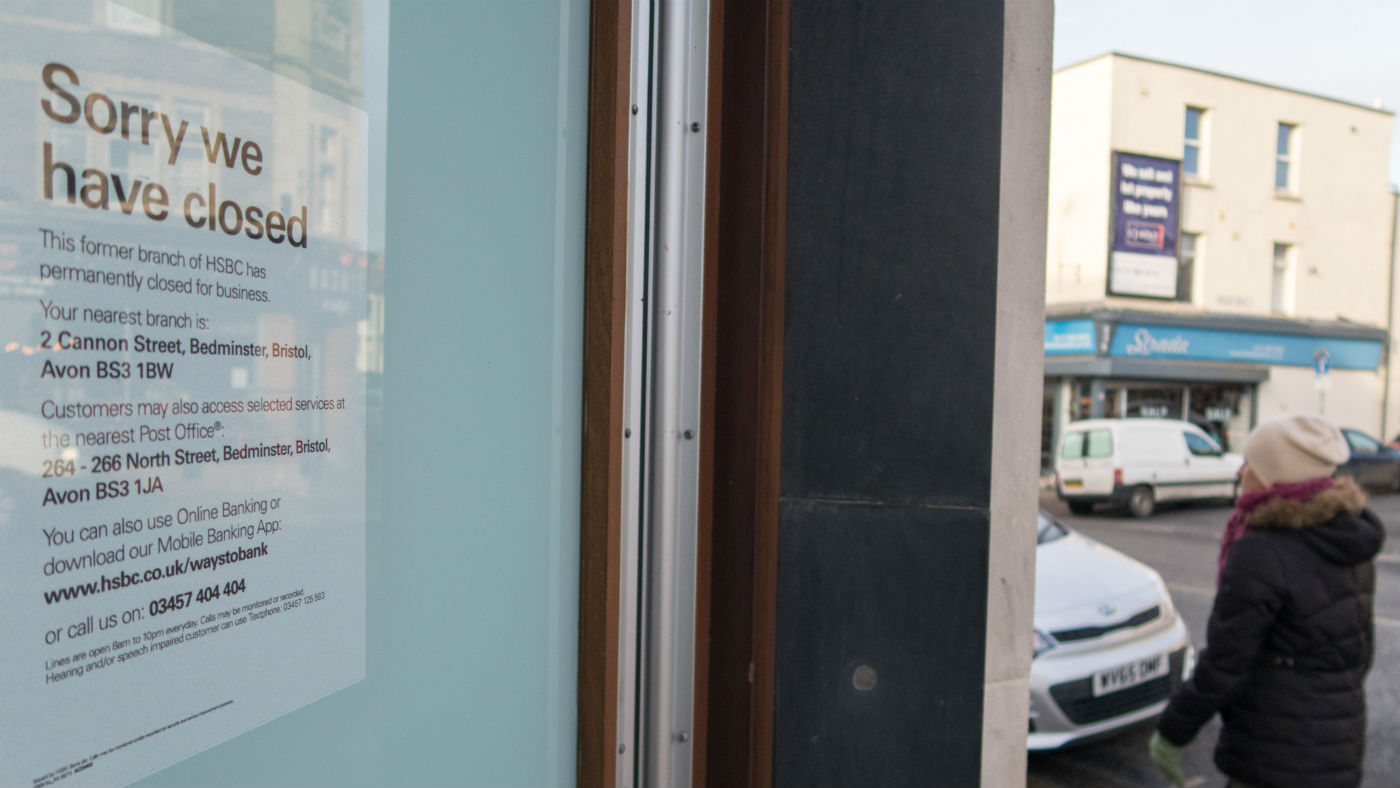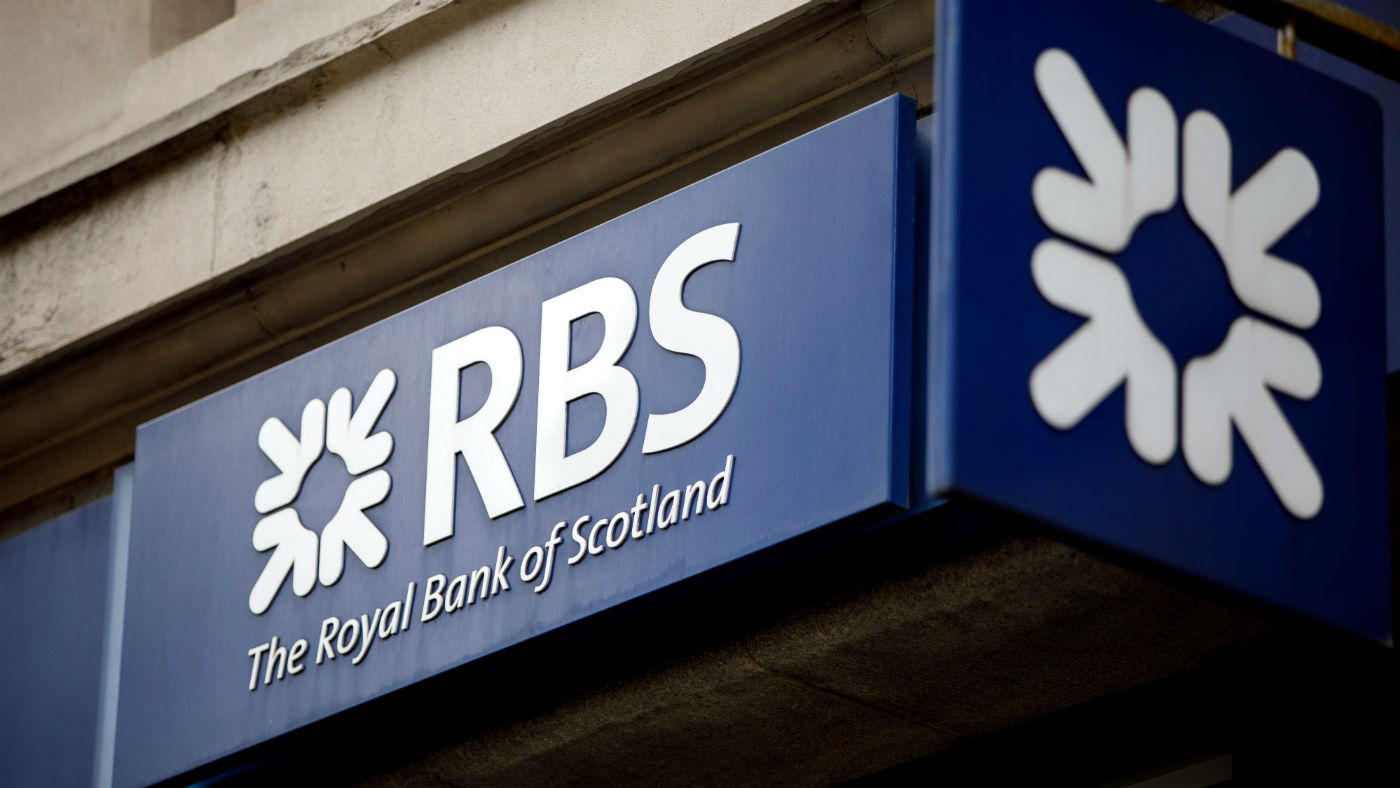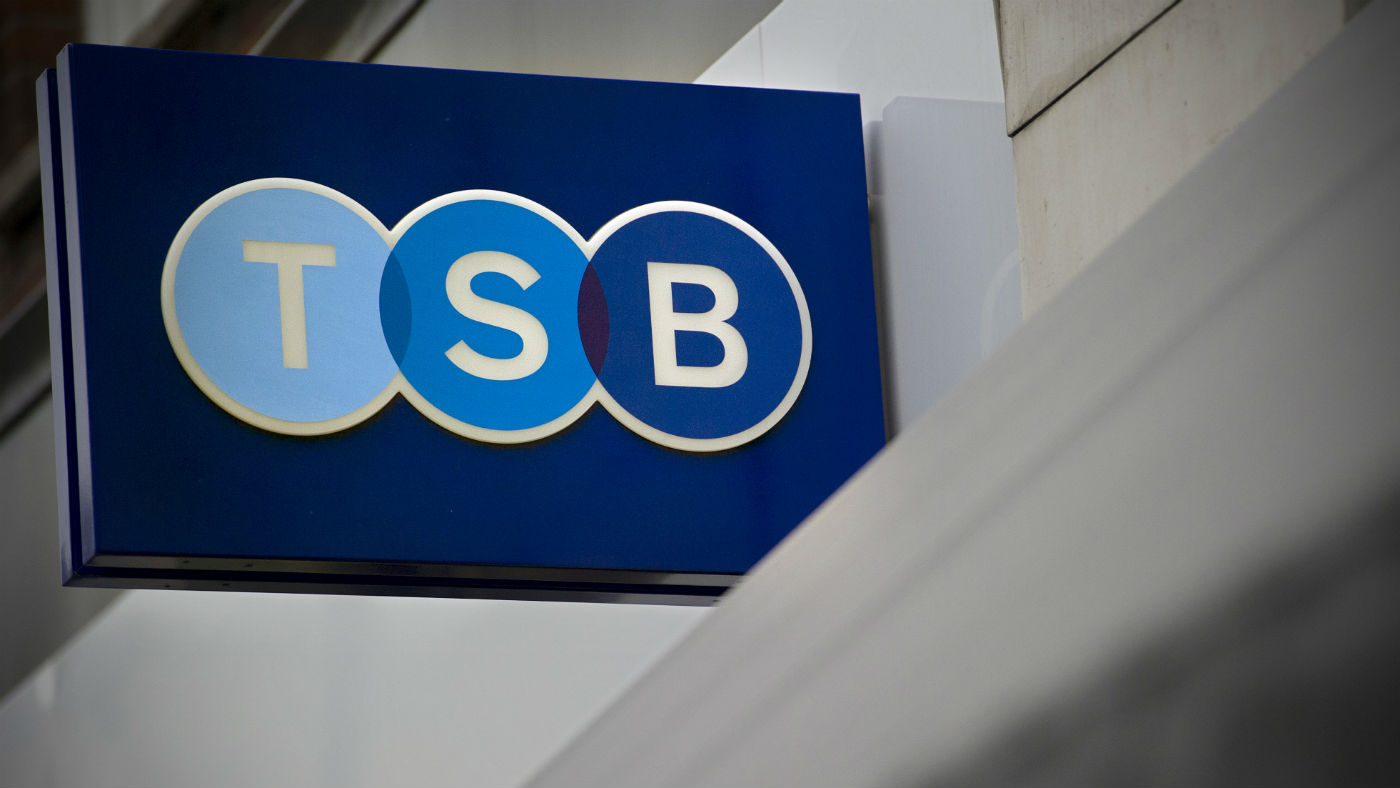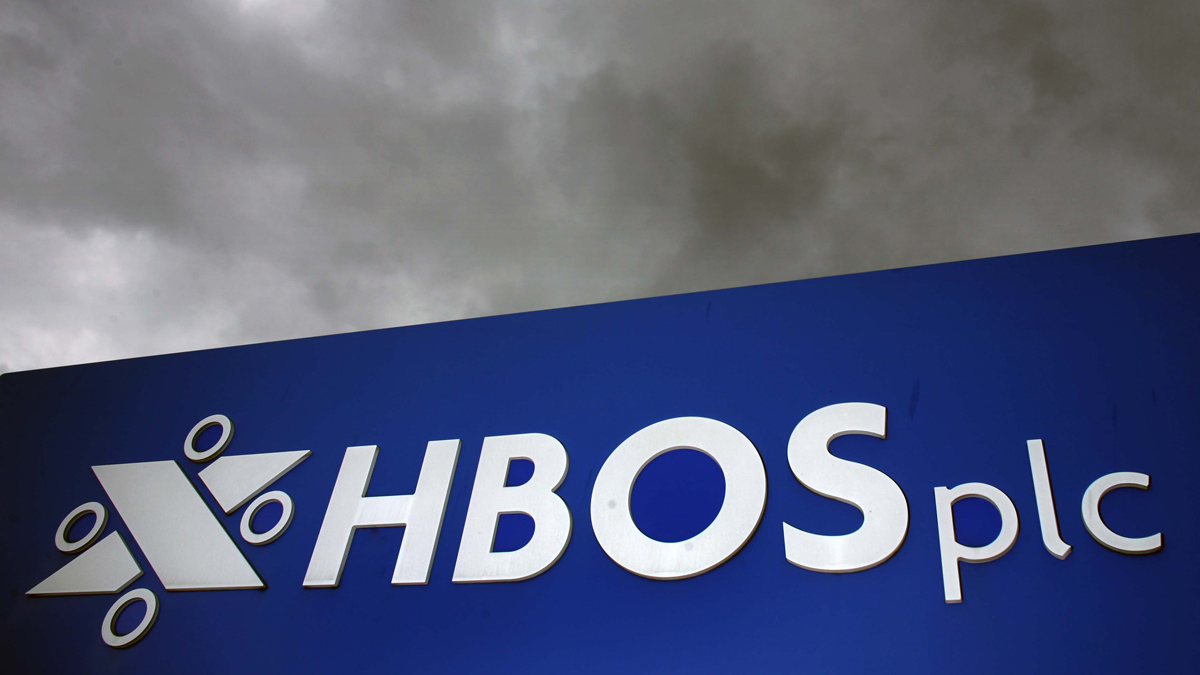Lloyds' boom-era bosses sue bank for bonuses
Eric Daniels and Truett Tate claim they should have received a full payout in 2012

A free daily email with the biggest news stories of the day – and the best features from TheWeek.com
You are now subscribed
Your newsletter sign-up was successful
Lloyds' shares tumble as it faces another £1bn of PPI costs
02 August
Lloyds shares tumbled this morning after the regulator proposed a cut-off on payment protection insurance claims that exposes the bank to up to £1bn of additional compensation costs.
The Financial Conduct Authority's (FCA) consultation sets out rules for a deadline on complaints to be imposed in June 2019. It would come into force from next year, from which time banks themselves would be required to fund a two-year marketing campaign to make consumers aware their time to complain is running out.
The Week
Escape your echo chamber. Get the facts behind the news, plus analysis from multiple perspectives.

Sign up for The Week's Free Newsletters
From our morning news briefing to a weekly Good News Newsletter, get the best of The Week delivered directly to your inbox.
From our morning news briefing to a weekly Good News Newsletter, get the best of The Week delivered directly to your inbox.
The FCA first suggested, following intense bank lobbying, in November that it could bring to an end a scandal The Times says has brought overall costs of £40bn on the banking sector.
But the watchdog had indicated the cut off would come in 2018, the date banks have used to estimate remaining redress. Lloyds made no further provision for PPI in its latest results and is thought to be fully covered only up to mid-2018.
"It is possible that an extra year's worth of provisioning may now be required," Shore Capital analyst Gary Greenwood told Reuters.
"We would not be surprised to see top-ups of a few hundred million pounds and perhaps as high as one billion pounds for each of the large UK banks, with Lloyds being the worst affected."
A free daily email with the biggest news stories of the day – and the best features from TheWeek.com
Lloyds Group brands sold more PPI policies than any other bank and it has so far paid out the largest chunk - £14bn - of the total of £24bn in direct compensation paid to affected customers.
The FTSE 100 was led lower this morning by Royal Bank of Scotland and Barclays, whose shares were being sold off because of a poor showing in the latest regulatory financial strength stress tests. They were down 3.1 and 2.1 per cent.
Lloyds, which is one of the most secure banks in relation to its capital reserves, was not far behind with a drop of two per cent to 52p by 11.30am. The wider top-100 index was down around 0.4 per cent.
Lloyds takes £350m charge over mortgage arrears inquiry
29 July
Lloyds may have avoided any further hit from the payment protection insurance scandal, but it is still racking up regulatory bills relating to alleged past wrongdoing.
The state-backed bank revealed in results yesterday that it had taken a £351m charge amid an ongoing investigation by the financial regulator into its treatment of mortgage borrowers who fall into arrears.
Its provision will cover "compensation and administrative costs relating to the investigation", says The Times. It could also face a fine if it is found to have breached rules.
All financial services firms have to adhere to stringent rules to ensure customers are treated fairly. Back in February 2014 they were also told to "proactively help those struggling to manage their finances", adds the Times.
Yorkshire Building Society was fined £4m in October 2014 for falling foul of this requirement.
Lloyds' pre-tax profits rose 101 per cent in the first half of its financial year, in particular because it was not forced to take any further provision for the PPI scandal that has already cost it £16bn in compensation.
But its shares slumped nearly six per cent yesterday after it revealed underlying profits had fallen – and warned that a squeeze on margins in a "lower for longer" interest rate environment post-Brexit might reduce its capacity to pay dividends.
It could run into trouble for its policy on interest rate too, says the Times, after it refused to comment on the action it would take if rates are as expected cut by the Bank of England next week.
An expected 25 basis points cut next week would "marginally benefit borrowers but obviously be negative for savers", said chief executive Antonio Horta-Osorio. He added the bank would consider what to do in the light of the Bank’s move, including seeing "what competitors would do".
Lloyds to slash 3,000 more jobs to cope with post-Brexit squeeze
28 July
Lloyds has announced it will lose 3,000 jobs to slash £400m more from its costs than it had previously planned.
In a trading update this morning the bank, which is still more than nine per cent owned by the taxpayer, said it will cut the jobs and close 200 more branches by the end of 2017. By then it will have completed the cull of 9,000 jobs and 200 branches announced in 2014, reports the BBC.
Explaining its latest move, Lloyds said it was preparing for interest rates to remain "lower for longer" in the wake of last month's vote to leave the EU. Lower interest rates reduce banks' net interest margin, which is effectively a proxy for profit.
There are widespread expectations that the Bank of England's Monetary Policy Committee will next week vote to cut rates from an already record-low 0.5 per cent to 0.25 per cent. Some believe the UK central bank could in time follow others by cutting rates below zero.
Lloyds added that its decision had been influenced by the accelerating pace of customers moving their banking online, with branch transactions down ten per cent in the past year.
In the results this morning, the group announced a 101 per cent surge in pre-tax profit, from £1.2bn to £2.5bn, for the first six months of this year. This was almost entirely because there was no new provision for payment protection insurance compensation, which has been a major drag in recent years.
Less encouragingly, underlying profit on activities fell to £4.2bn from £4.4bn last year, although this was above analyst expectations of £4bn.
Worse as far as shareholders are concerned, the bank warned that the hit from Brexit could reduce its capacity to increase capital reserves and in turn the excess money it is able to distribute in dividends.
Shares in the bank were 3.4 per cent down to 53.86p at 11am in London today.
Lloyds still pursuing buyout despite Brexit blow
06 July
Lloyds has not given up hopes of striking a deal to buy MBNA, the credit cards giant put up for sale by Bank of America, reports Sky News.
The auction of MBNA was expected to be abandoned after the Brexit victory last month, with private equity groups getting cold feet as a result of the intense economic uncertainty that followed.
But "Lloyds is said to still be keen to attempt to explore a deal", as it looks to acquisitive growth to boost its underwhelming recent earnings.
Yesterday, the bank announced in an internal memo the return of Eduardo Stock da Cunha, who has for two years been on secondment at Novo Banco, the bank created after the bailout of Banco Espirito Santo. The Portuguese national has "a brief to head its mergers and acquisitions strategy".
According to Sky News, "Lloyds wants to pursue takeovers in areas where it is under-represented, such as cards and insurance".
The fact that Lloyds is still pursuing growth opportunities is a vote of confidence in the bank's financial strength on the part of its management. Listed banking shares have been under acute strain since the referendum result was announced.
Lloyds's shares were trading around 49p at 3pm in London, down four per cent for the day and more than 32 per cent down since the close of trading immediately before the poll.
Banks are in a stronger position now than they were in the financial crisis of 2008 and 2009, when lending costs rose and exacerbated the credit crunch.
Now, capital reserves are stronger and the Bank of England has reduced lending costs, meaning banks can actually boost lending to help prop up the economy.
The BBC's Kamal Ahmed says governor Mark Carney is keen to reassure the markets. While bank shares were battered yesterday, just as they were with government bonds, their borrowing costs have actually fallen in recent days.
"Investors may be concerned with profitability and economic growth… What they didn't seem so worried about was the resilience of the whole system," says Ahmed.
Lloyds to cut 640 jobs in further cost-cutting move
30 June
Lloyds Banking Group has revealed it will be making another round of job cuts and branch closures as part of its cost-cutting programme.
The Daily Mirror says the cull of 640 roles and 23 branches comes "hot on the heels of the EU referendum Leave vote ", which has led to pressure on banking groups.
Sky News says the government-backed bank had pledged to cut the jobs and close 200 branches. After the latest actions, Lloyds will be "two-thirds" of the way through its plans, it adds.
Unions have expressed concern at the latest announcement, arguing that IT and wealth management operations would be affected. Lloyds says it would create 115 new roles to bring the net loss down to 525.
Rob MacGregor, the national officer for the trade union Unite, said: "The continuation of the bank's major job loss programme will bring disappointment as staff feel they have already faced two years of endless workforce cuts. These latest job losses are to impact staff across the country."
A Lloyds spokesman said: "Lloyds Banking Group is committed to working through these changes with employees in a careful and sensitive way. All affected employees have been briefed by their line manager today."
Like other major banks, Lloyds's shares have been hit hard since Brexit's victory last week. The bank's shares are down three per cent today in a rising market and have shed 25 per cent since Friday.
-
 Quiz of The Week: 14 – 20 February
Quiz of The Week: 14 – 20 FebruaryQuiz Have you been paying attention to The Week’s news?
-
 The Week Unwrapped: Do the Freemasons have too much sway in the police force?
The Week Unwrapped: Do the Freemasons have too much sway in the police force?Podcast Plus, what does the growing popularity of prediction markets mean for the future? And why are UK film and TV workers struggling?
-
 Properties of the week: pretty thatched cottages
Properties of the week: pretty thatched cottagesThe Week Recommends Featuring homes in West Sussex, Dorset and Suffolk
-
 Could ‘banking hubs’ solve problem of branch closures?
Could ‘banking hubs’ solve problem of branch closures?Speed Read MPs fear large sections of society could face ‘financial exclusion’
-
 RBS to cut 162 branches and 792 jobs
RBS to cut 162 branches and 792 jobsSpeed Read Move comes days after taxpayer-owned bank announced 206% rise in profits
-
 TSB crisis enters fourth day
TSB crisis enters fourth daySpeed Read Bank boss ‘sorry’ for IT chaos that has left customers unable to access accounts or make payments
-
 Lloyds shareholders in £350m claim win disclosure battle
Lloyds shareholders in £350m claim win disclosure battleIn Depth Judge rejects bank's argument that advice ahead of ill-fated takeover of Hbos is privileged